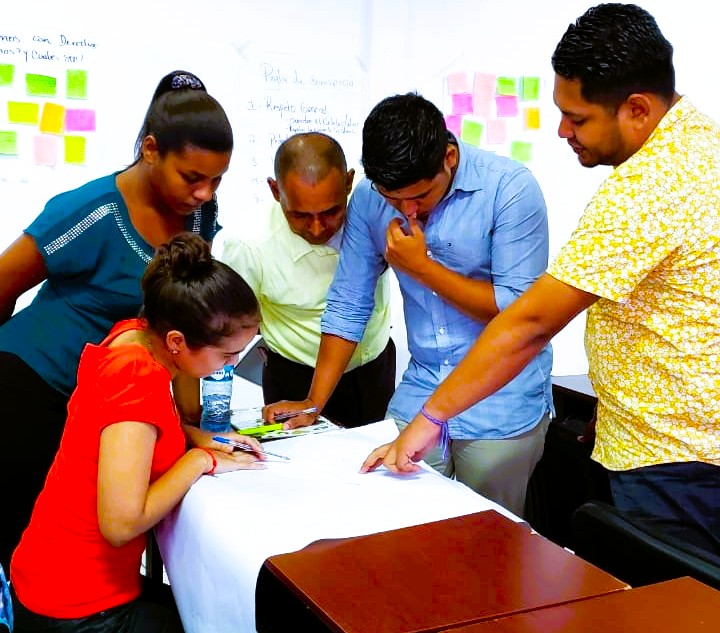There was a time when the universities on the Caribbean Coast were far more than classrooms and payrolls. They were the heart of free thought, the refuge of regional autonomy, and the meeting point for those who dreamed of a Caribbean capable of thinking and governing itself.
The Bluefields Indian & Caribbean University (BICU) and the Universidad de las Regiones Autónomas de la Costa Caribe de Nicaragua (URACCAN) emerged in 1991 and 1992 as the most tangible projects of the autonomy ideal: universities founded by coastal people for coastal people, with the mission of preparing technically capable individuals who were, above all, conscious of the region’s territory, politics, and economy.

There, identity, history, and dignity were discussed.
The Caribbean was taught to be viewed not from Managua, but from its own horizon — multiethnic, multilingual, intercultural. For many years, these universities reflected a promise: that education could liberate rather than domesticate indigenous, Afro-descendant, and mestizo coastal people.
What began as a project of freedom, the product of historical struggles and the sacrifices of coastal communities, was slowly hollowed out from within by those who should have defended it. It wasn’t outsiders who betrayed it first, but some sons of the Coast, who built personal privileges and secret fortunes under the guise of autonomy.
Figures who speak of dignity while living from the power that denied it, who shed public tears for autonomy yet turn it into political servitude and personal gain.
Names come to mind Alemán-Cunningham, Campbell, Hodgson not to generalize the surnames, but to recall those who, from their positions or loyalties, became instruments in the deterioration of our autonomy institutions and universities.
Today, where territory, rights, and inequalities were once debated, spectacle is prioritized over thought. Universities that were born to form consciousness have turned into stages of distraction.
Competitions, parades, and parties fill the halls with lights, while true academic excellences receive only symbolic acknowledgment. The priority appears to be applause, not reflection.
While there is nothing inherently wrong with celebrating joy or culture, what is tragic is to see education reduced to entertainment when it should be the space where thought, critique, and freedom are cultivated.
It’s not the fault of teachers or students (many survive between illusion and fear), but of a system that punishes difference and rewards obedience. Budget cuts millions of Córdoba’s in recent years have been met with silence. Before, defending the 6 % was a legitimate act of university advocacy; now, a glance says no one dares to speak.

And so one wonders
There is fear in the classrooms, in the hallways, even in the emails. Professors who remain silent to keep their jobs; students feigning enthusiasm while remembering the days when one could dissent. Many of the best teachers — those who taught how to think rather than how to repeat have been sidelined, not for lack of capability, but for excess of criterion. Their place is now occupied by docile voices willing to say what is safe, though they do not believe it.
Control has become invisible, every day and almost natural digital surveillance, rumors, screens that watch, social networks that betray more than inform.
And so one wonders: How can we speak of a university when there is no free thought?
How teach Law without discussing what is legal and what is just?
How teach Ecology or Environmental Engineering without mentioning extractivism or Chinese mining concessions in Bosawás and Indio-Maíz?
How teach Social Sciences without comparing power models or discussing democracy and authoritarianism?
And how train Health Sciences professionals without allowing them to question the reality of their own communities the absence of medical centers, medication, or dignified care?
How teach Education Sciences without speaking of school abandonment, the loss of mother tongues, teacher precariousness, or reduced education budgets?
And how teach Technology or Computing without reflecting on unequal access to knowledge and the digital divide separating the Caribbean regions?
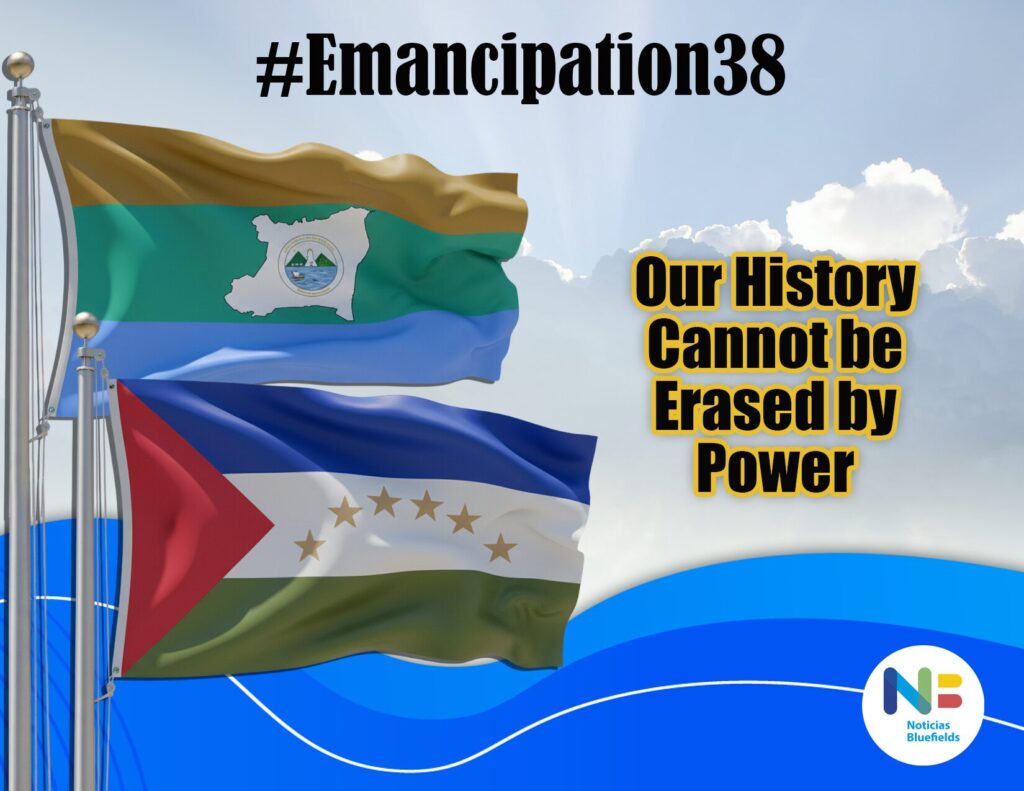
Being a university meant thinking
The classroom has become a minefield, where silence weighs more than knowledge. In that silence, academic value has been replaced by political loyalty. Positions, promotions, and opportunities are decided by proximity to power.
Thus, the university gradually stops training citizens and begins manufacturing the obedient.
The word “university” comes from the Latin universitas magistrorum et scholarium, which meant the community of teachers and learners. It wasn’t a building or a business, but a pact of intellectual freedom and shared pursuit. Being a university meant thinking, doubting, debating, and contradicting.
When difference is punished and silence is rewarded, that word is emptied: the form remains, but the spirit is lost.
Kant taught that reason is free only when it serves no power. Humboldt envisioned the university as a place where knowledge is pursued for its own sake, without fear or subordination. And Freire reminded us that teaching is not domesticating no one educates anyone; we educate together as we discover the world.
In Latin American history, so frequently invoked yet seldom understood, there were voices that defended free thought as the root of every independence. Martí warned that true freedom arises from culture.
Bolívar spoke of moral education and of “the lights” as the first needs of a people. Sandino dreamed of schools that taught how to think before how to obey. And Fonseca Amador imagined a university serving liberation, not privilege. I do not mention them to pay tribute (they have had enough) but to remind you that even they wouldn’t agree with how their names are cited today.
If they lived, they would be ashamed to see how their words are used to justify fear and how their memory is invoked to suppress doubt.
They speak of revolution but censor critique.
They invoke Sandino but betray his thought.
They repeat Martí but fear culture.
They call up Fonseca but reduce his ideas to slogans of obedience.
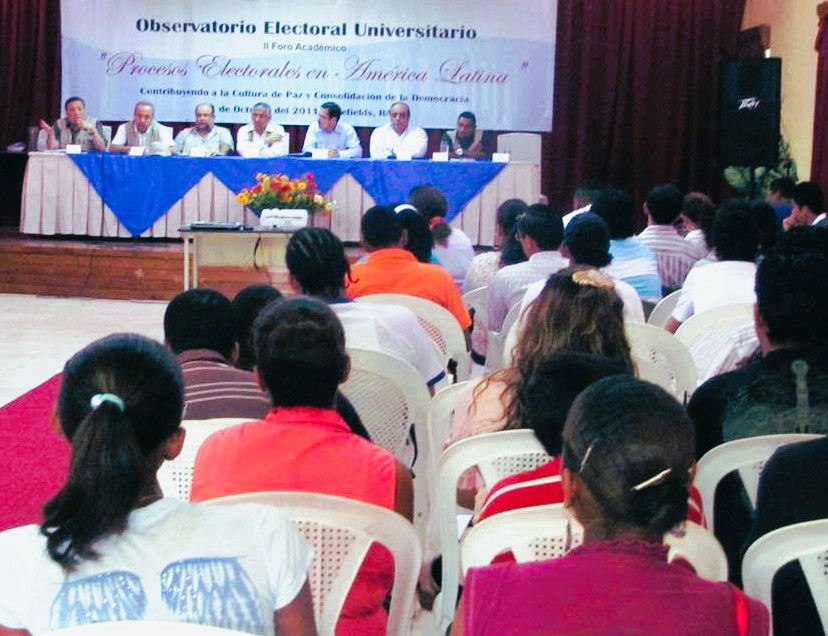
They don’t know what they defend nor what they destroy. And perhaps therein lies the tragedy: forgetting that thought (even of our own heroes) has always been an act of insubmission.
If they understood even a portion of their legacies, they would stand on the other side of the barricade with the expelled teachers, the silenced students, and the peoples demanding their right to speak truth. A power that fears ideas betrays every revolution, empties autonomy, and condemns education to moral failure.
Law No. 89 on Autonomy of Higher Education Institutions declares that Nicaraguan universities enjoy academic, organic, administrative, and financial independence and that the freedom of teaching is inviolable.
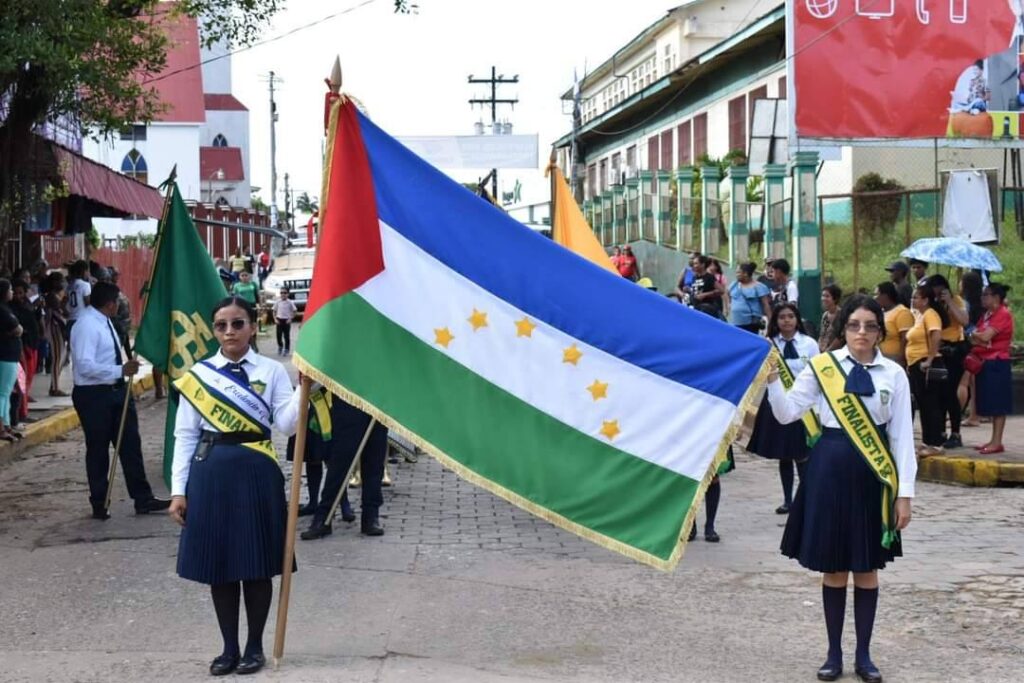
The same spirit BICU and URACCAN
That law was born of the same spirit that gave life to BICU and URACCAN: the conviction that knowledge only flourishes where there is independence. Today, however, that legal wording has become paper with no soul.
Authorities are no longer chosen by their academic communities, but imposed from above. Decisions are no longer taken in the faculties, but in the offices of the party. What was autonomy becoming subordination; what was education became propaganda.
In the past there were AE-BICU and AE-URACCAN, autonomous student associations that dignified the student body and defended university justice. Today their place is taken by UNEN, the political arm of the FSLN that distributes resources, controls student lists, and monitors opinions. Leadership no longer arises from thought but from convenience.
Although some young people still dream of a different Caribbean, they now do so in silence, knowing that speaking out can cost more than an academic sanction. Many graduates with degrees that no longer open doors but raise questions.
They live between uncertainty and resignation wondering whether to go work on cruise ships, try to reach the United States, or remain in an increasingly shrunk local labor market ravaged by crisis. Knowledge, once a promise of the future, has become luggage for departure.
And in this silent exodus the most valuable thing a university should preserve has been lost: hope.
Not everyone participates in the deceit, but everyone is trapped in its shadow. There was a time when coastal universities hosted forums, debates, and meetings where people thought for themselves. Now there are countless marches without meaning, political rallies, and temples of cult to personality.
Where once there was critique, now there is applause; where once there were arguments, now there are slogans. “Victory units” are installed inside the campuses like eyes of power walls are covered with red-and-black flags, slogans and portraits of the governing party; auditoriums turn into temples of propaganda where obedience is repeated under the disguise of patriotism. What once was a space for autonomous thought has been reduced to a guarded echo.
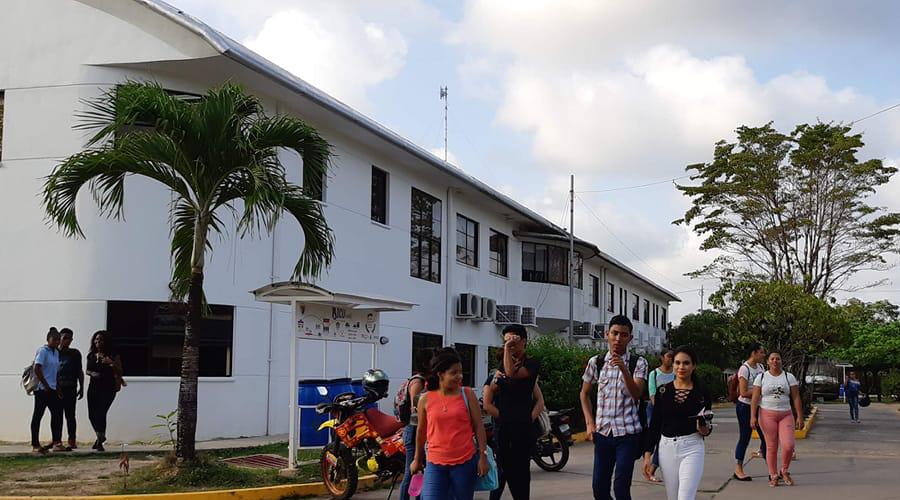
The universities remain buildings, coats of arms, ceremonies but they are no longer houses of thought: they are display cabinets of control.
The social networks, the photographs and the testimonies that now circulate quietly will one day be the documents of a dark time in Caribbean higher education. They must be preserved not out of resentment but for memory. Because history repeats itself when silence becomes habit, and because one day free thought will rise again in the classrooms of BICU and URACCAN.
To the teachers who still teach with dignity, and to the students who still dream of a real university this piece does not point to you: it embraces you. Because you know, in silence, that something has been lost, and that autonomy does not die entirely as long as someone remembers it and continues to seek it. One day, when freedom again has a home, it will be in the very same classrooms where the order to silence once rang loud.
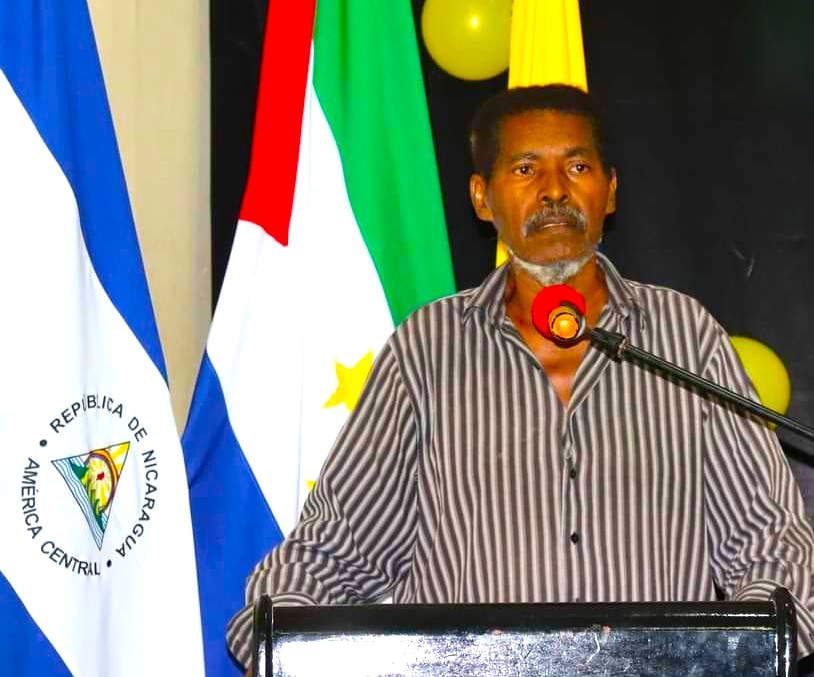
Written by Iban K.
READ ALSO A Sea of Risks: The Reality of Fishermen’s Work on Nicaragua’s Caribbean Coast


